Covid NSW: Penrith principals reveal how to make the most of lockdown homeschooling
From thinking kind thoughts to self care and socialising over Zoom, Penrith’s principals have the top tips for surviving homeschooling.
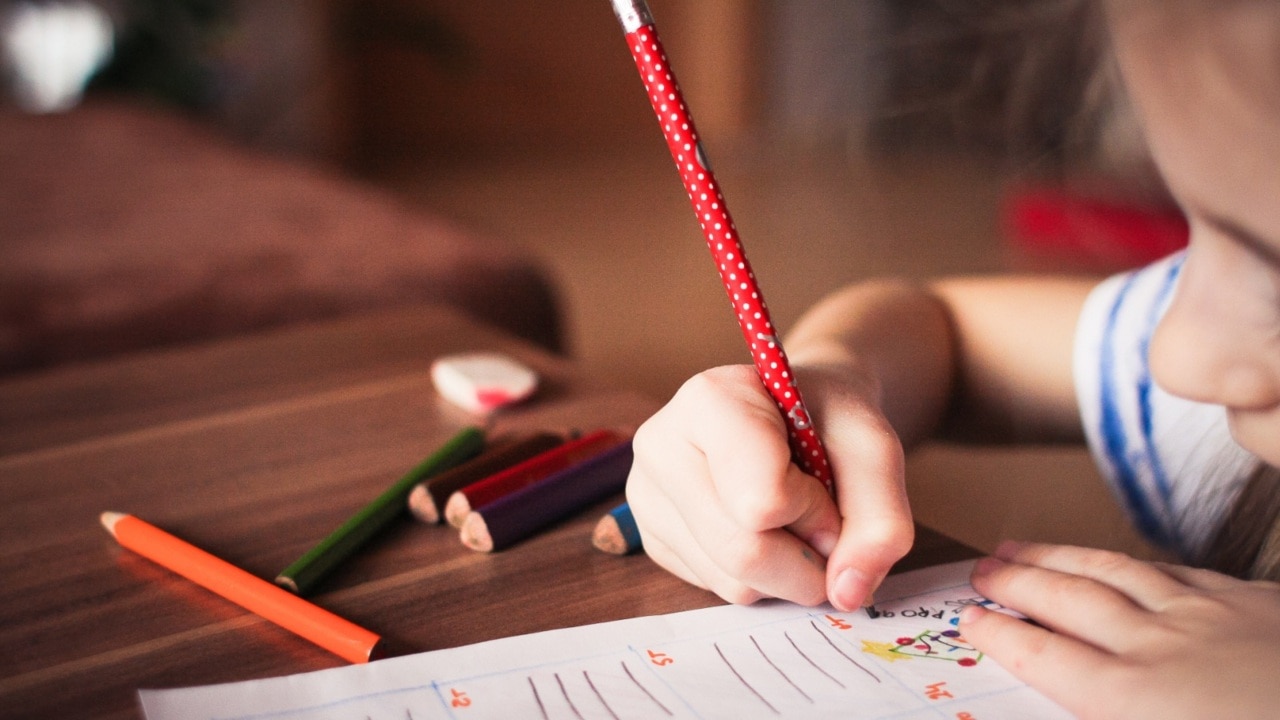
Penrith
Don't miss out on the headlines from Penrith. Followed categories will be added to My News.
Lockdown is hard. Covid has a lot to answer for but add in educating your children remotely and it can understandably feel overwhelming.
From reaching out for help, self care and socialising over Zoom meetings, Penrith’s top educators have revealed the ways to make the most of homeschooling for both students and their parents during the pandemic.
1. You do not have to answer every question or jump in too quickly
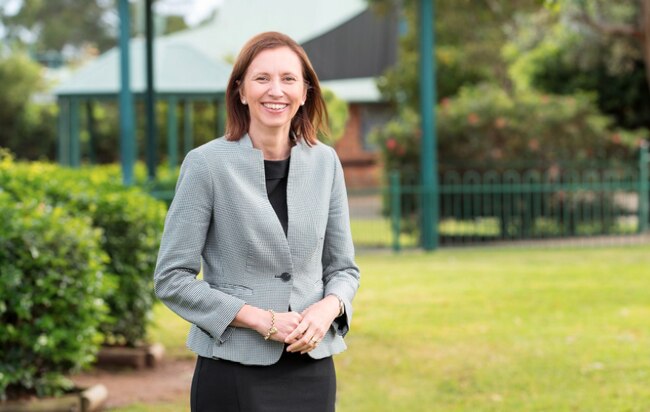
Penrith Anglican College principal Felicity Grima encouraged parents to take a step back and allow their children to learn.
“As parents, sometimes we jump in too quickly to help our children. Remember that in a face-to-face classroom, your child is one of many children. A teacher cannot necessarily answer a question or meet every need immediately,” Mrs Grima said.
She said the struggle of problem solving is part of the learning process.
“Just as importantly, there are times when it’s a necessary part of learning for your child to struggle for a little while and to look for solutions,” she said.
“The sense of accomplishment and pride at having persevered and mastered something that was tricky is a powerful learning moment.”
While homeschooling can feel overwhelming, Mrs Grima said to remember not all questions need immediate answers.
“You do not need to answer every question your child asks. You may want to encourage them to write down their question and remind them to ask their teacher in their next Zoom lesson,” Mrs Gima said.
“Alternatively, they can email it to their teacher who will answer it in their next Zoom.”
Mrs Grima reminded parents there are resources and services available to assist them through the homeschooling process.
“If your child is struggling, let their teachers know. You will have insights that teachers cannot gain from the screen,” she said.
2. Instead of asking what they did at school, dig deeper.

Caroline Chisholm College principal, Dr Greg Elliott, offered up a philosophical approach that encourages deeper critical thinking for parents.
He advises parents to try not to ask “what did you do in your classes today?” but instead switch up the line of questioning.
Dr Elliott provided the suggested questions below:
- What was the hardest thing you had to do in class today?
- Did you get a chance to help another student today?
- How can you tell if you‘re going well in your learning?
- What is one thing you can try tomorrow that will make learning from home better?
- What is something you‘d like to say to your teacher about remote learning?
- In a couple of days, can you show me something you‘re working on that you’re proud of? (Don’t forget to follow up).
3. Don’t forget you’re part of a larger school community
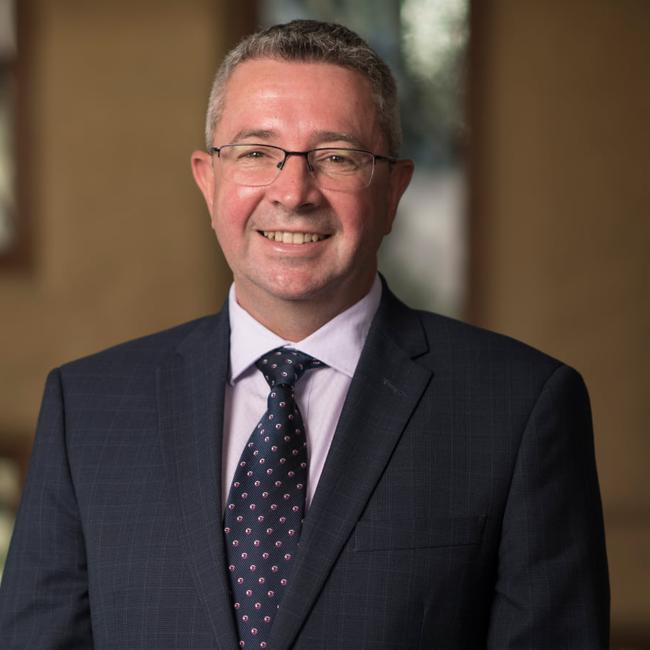
St Paul’s Grammar School principal Ian Wake encouraged parents and students to remember that they are part of something bigger.
“Don’t forget you are still part of a larger school community of teachers and students who are there if you need to reach out for help or guidance,” Mr Wake said.
The principal said students can feel very isolated and disconnected during this remote learning period.
“It can be easy to lose sight of the bigger picture while learning remotely,” Mr Wake said.
“However, the tools we use to learn at home can also be used to keep in touch with good friends and family, helping to remind us how important our relationships are during this difficult time.”
4. Establish a routine and manage expectations

Nepean Christian School principal Cameron Nunn encouraged parents and students to stick to a routine during homeschooling.
“Establish routines of time and place. Kids need order and structure to learn,” Mr Nunn said.
“Create a secure place to study that’s free of distractions with clear times of how long and what breaks.
“When you set free time, make sure that it’s not more time in-front of a screen. Kids need to get outside and exercise, be creative and activate their imagination.”
Mr Nunn said parents and students need to prioritise homeschooling around the student’s learning needs.
“The best learning time is first up in the day. If maths requires the greatest concentration, then make that the first thing they do every day,” he said.
“Make sure you know what the school’s expectations are. If you are uncertain about whether something is important or optional, get that clarified. Build online, regular communication with your child’s teacher. Asking lots of questions is important, and should be welcomed by teachers.
“If your child is struggling, find out what learning or pastoral support the school can provide.”
He also encouraged learning outside the bounds of academia.
“Never underestimate the importance of non-school learning opportunities. Learning to cook, build, garden, clean and many other life skills are often more valuable. Don’t be afraid to vary the curriculum,” he said.
Mr Nunn encourages undertaking different ways of teaching in order to cater to the learning needs of students.
“All kids learn differently and many will struggle with remote learning. Pick your battles wisely. Sometimes it’s better to let things slide,” he said.
“Teachers know that when students return, there will be gaps. They’ll work at fixing those. There are times when you just need to send them outside to play.
“Don’t stress. You can only do the best you can do but that will still be enough.”
5. Kind thoughts. Kinds words. Kind actions.
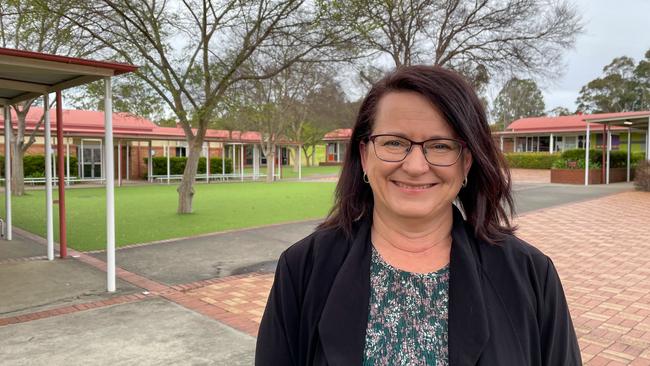
Trinity Catholic Primary School Kemps Creek principal Cathy Hey said parents and students should adopt the mantra ‘Kind thoughts. Kind words. Kind actions’ which they so often use at school.
“During this challenging time of remote learning my tips for success are to embrace this mantra even more than usual,” she said.
When it comes to kinds thoughts, this section encourages students and parents to be kind and understanding with themselves and their own needs, Ms Hey said.
“A routine is certainly important but it is also OK to go off script sometimes and be kind to ourselves. Taking the time to think positively about ourselves and others is good for our wellbeing and energises us to keep going,” she said.
“When we are living in close quarters and seeing the same people every day, it is important to speak kindly to them. The ripples of kindness spread easily in a household or community.”
She also encouraged students and parents to interact with the school community via technology.
“The Trinity community is staying connected with regular zooms and even a weekly bedtime story for the kinder children,” Ms Hey said.
“A wise little kinder person said to me the other day, ‘I can still see you are smiling even with your mask because your eyes are smiling too’”.
The last section of the mantra, kind actions, reminds parents and students to show gratitude for the kindness they witness.
“Our students have written letters and produced artworks to give to essential workers showing appreciation for keeping the community safe,” Mrs Hey said.
“There are many examples of people reaching out to help others even though they cannot do so in person. Kindness doesn’t need to stop because we are not seeing each other in person.”
Although this online learning plan in place, she looks optimistically to the future.
“When this is all over and we look back on this time, I hope we remember some of the kind thoughts, kind words and kind actions,” she said.
6. Listen to yourself and take every opportunity to participate
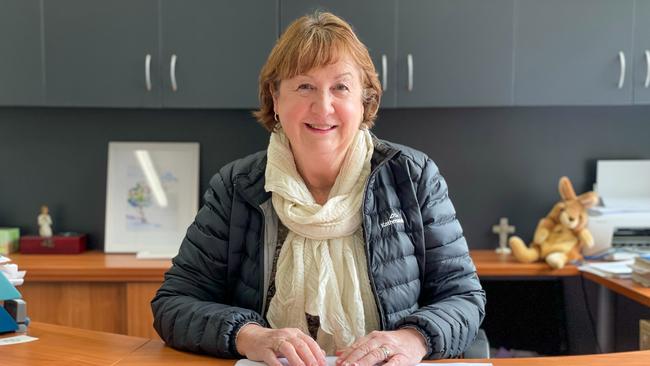
St Joseph’s Primary School principal Patricia Reilly offered up two main tips for homeschooling.
The first being, encouraging students to listen to themselves and ask themselves how they’re feeling and if they are going okay.
“Ask yourself questions and then chat to someone about what you are telling yourself,” she said.
“Be kind to the person helping you at home with your learning – they’re learning how to do it as well.”
Second to self-care, Mrs Reilly encouraged students to take every opportunity handed to them.
“Take every Zoom opportunity – it’s the best time to learn with your teacher and classmates,” she said.
“Take every opportunity to participate in the fun activities your school is creating – it helps you to remember that you are connected with many people who care about you.”
The St Joseph’s principal encouraged students to look beyond the current circumstances.
“This time of Covid, isolation, uncertainty and challenge is very difficult for everyone in the community. By looking past this darkness we can see many bright lights of hope for a better future,” she said.
“Our children are resilient. A second year of Covid and still they are smiling, engaging in their learning and finding ways to do even better. The uncertainty has become something they bounce back from.”
Mrs Reilly said these trying circumstances can also be a learning and development opportunity.
“Our children have come to realise that they have the power to be independent. They have gained confidence to know that they can do this – this new way of learning, this new way of living,” she said.
“Our children are the lights. Everyday it is the faces of the children I see on Zooms, their smiles, their enthusiasm and their joy that keeps me positive that the future will be bright.”




